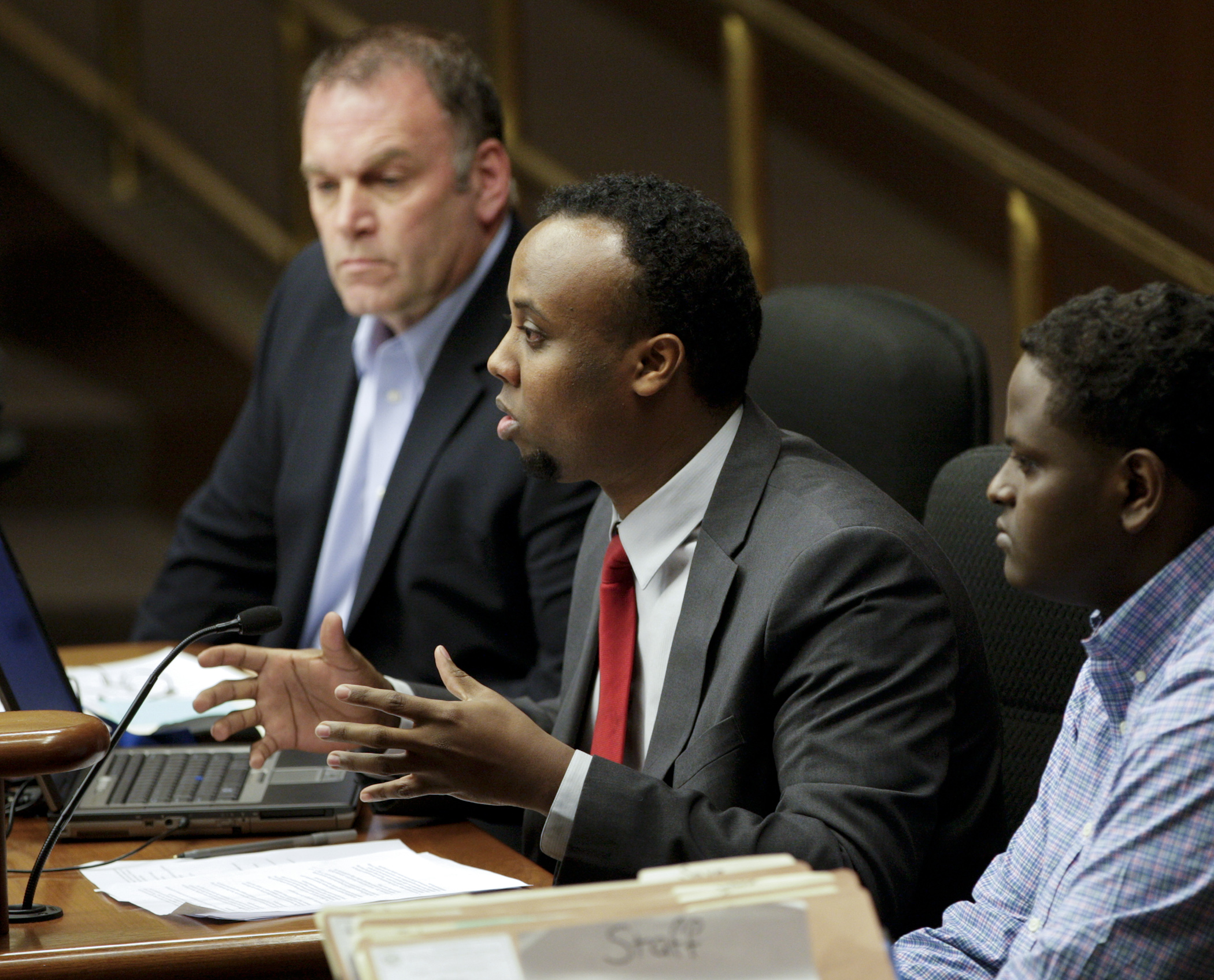Funds to fight radicalization considered by legacy committee

The Somali terror group al-Shabab, which recently called for an attack on the Mall of America, has recruited more than two-dozen young men from Minnesota’s Somali-American community to join its ranks since 2008. However, further attempts to radicalize Somali-Americans may be more difficult if legislation considered Monday by the House Legacy Funding Finance Committee is successful.
Sponsored by Rep. Dave Baker (R-Willmar), HF967 would provide $1.35 million during the 2016-17 biennium to deliver arts education, workshops, mentor programs and community engagement events for Somali-American youth across Minnesota.
The bill, which was laid over for possible omnibus bill inclusion, would provide funding for Ka Joog, an organization founded in 2007 that provides a support network for Somali children in the state. The companion, SF845, sponsored by Senate President Sandy Pappas (DFL-St. Paul), awaits action by the Senate Finance Committee.
Mohamed Farah, Ka Joog’s executive director, said there is “a growing need to make sure that our youth in these communities are safe” and the funding would help young people integrate more fully into their schools and cities. Farah said radicalization “doesn’t happen overnight” and that lack of education and guidance makes it easier for terror groups to find new members.
“We work to urge Somali youth to stay away from all negative influences including the recruitment of al-Shabab and ISIS by getting engaged in education and the arts,” Farah said.
Ka Joog, which is a Somali term that means “stay away,” promotes education and economic empowerment through a variety of methods. These include the Fanka Program, which introduces youth to traditional Somali arts and offers intercultural engagement. The funds in HF967 are designated for this program.
Minnesota is home to the largest Somali population in the United States, with some estimates placing the number of Somali-Americans in the state near 70,000. Farah said the Fanka Program is currently underway in Eden Prairie, Minneapolis and St. Paul, but additional funding would allow expansion to other cities around the state with large Somali-American communities such as Willmar, Rochester and Mankato.
Baker, who represents Willmar, said he was proud to carry the bill and proud to have a large Somali-American community in Willmar.
“I hope Minnesota makes a strong statement today that we see the value of these youth and that their intentions are pure and good,” Baker said. “I think the message has been so clouded out there by such horrible acts of violence that we need to make sure that we stand up for these good people in Minnesota.”
Related Articles
Search Session Daily
Advanced Search OptionsPriority Dailies
Ways and Means Committee OKs proposed $512 million supplemental budget on party-line vote
By Mike Cook Meeting more needs or fiscal irresponsibility is one way to sum up the differences among the two parties on a supplemental spending package a year after a $72 billion state budg...
Meeting more needs or fiscal irresponsibility is one way to sum up the differences among the two parties on a supplemental spending package a year after a $72 billion state budg...
Minnesota’s projected budget surplus balloons to $3.7 billion, but fiscal pressure still looms
By Rob Hubbard Just as Minnesota has experienced a warmer winter than usual, so has the state’s budget outlook warmed over the past few months.
On Thursday, Minnesota Management and Budget...
Just as Minnesota has experienced a warmer winter than usual, so has the state’s budget outlook warmed over the past few months.
On Thursday, Minnesota Management and Budget...